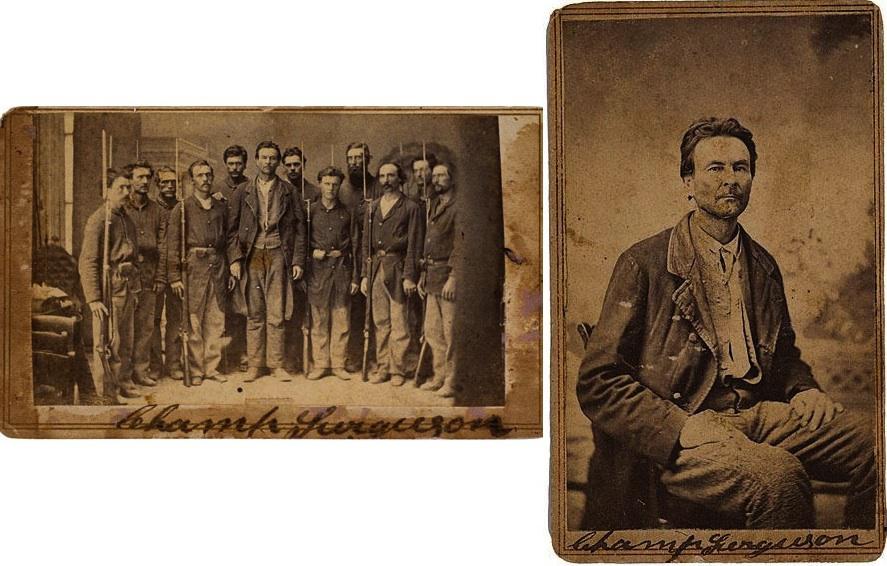The Vault is Slate’s new history blog. Like us on Facebook; follow us on Twitter @slatevault; find us on Tumblr. Find out more about what this space is all about here.
Champ Ferguson spent a lifetime cementing his reputation as a churlish speculator in the Cumberland Mountains, but it was his wartime sadism that captivated the nation. Rather than enlist in the Confederate army, Ferguson led a vicious band in search of Union loyalists on his home turf.
Among other crimes, the vigilante killed his old friend William Frogg, bedridden with the measles, while his newborn baby wailed in a nearby crib. “You should have raised him right,” Ferguson supposedly told John Crabtree’s mother as she begged him to spare her son’s life. After a Confederate victory in Saltville, Va., his band killed wounded prisoners of war in their hospital beds.
Leaders of the Confederate army recognized the advantage of working with Ferguson’s band on an informal basis. Brig. Gen. John Hunt Morgan and Maj. Gen. Joseph Wheeler preferred to have Ferguson near the battlefield, rather than on it, as he frequently violated the rules of warfare.
At his 1865 Nashville, Tenn., trial on 53 counts of murder, the defense argued that Ferguson should be subject to Confederate surrender agreements and paroled. Instead, he was tried as a guerrilla acting outside the bounds of the army.
Newspapers from coast to coast covered the trial. Under the headline ”Unparalleled Atrocities,” the New York Times offered lengthy physical descriptions of Ferguson: “His large black eyes fairly glitter, and almost look through a person,” his “dress was slovenly and shabby,” but his “voice is firm” and “he is a man of iron nerve.”
According to an article in the Nashville Dispatch, Ferguson read the following statement during sentencing:
I die a Rebel out and out, and my last request is that my body be removed to White Country, Tennessee, and be buried in good Rebel soil.
On Oct. 20, 1865, Ferguson was hanged in Nashville, with his wife and child in attendance. His request that he be buried in White County was honored.
Patriots on both sides collected iterations of the carte de visite featuring Ferguson’s image and the Union soldiers assigned to guard him. The sheer number of signed Ferguson carte de visite images auctioned off over the years suggests his autograph was widely coveted.

L: Champ Ferguson, surrounded by Union soldiers in 1865. Source: Wikimedia Commons. R: Champ Ferguson, 1865. Source: Wikimedia Commons.